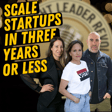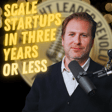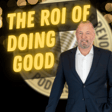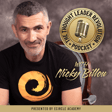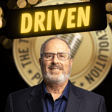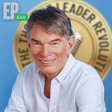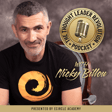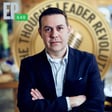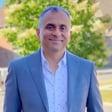
EP628: Jen Yundt Coles - The Little Known Secret To Optimizing Your Health After 50!
“I find that my clients tend to be entrepreneurial, driven, and passionate individuals. Sometimes, what got them to where they are is also what’s holding them back.”
In this enlightening episode, host Nicky Billou sits down with functional medicine practitioner and SIBO specialist, Jen Yundt Coles, to discuss the profound connection between gut health and overall well-being. Jen shares her personal journey from struggling with digestive issues to becoming a leading voice in addressing Small Intestinal Bacterial Overgrowth (SIBO) and other chronic digestive challenges. With her trademark blend of compassion and expertise, Jen dives into the root causes of SIBO, the importance of individualized nutrition, and the role of mindset in achieving sustainable health.
Whether you’re an entrepreneur, a health practitioner, or someone navigating your own health journey, this episode is packed with actionable insights to help you take control of your wellness.
About Our Guest: Jen Yundt Coles
Jen Yundt Coles is a certified functional medicine practitioner and coach specializing in Small Intestinal Bacterial Overgrowth (SIBO) and chronic digestive issues. Driven by her own health challenges, Jen’s mission is to empower individuals and practitioners to adopt a more holistic, personalized approach to gut health. Through her practice, The SIBO Coach, Jen combines evidence-based strategies with a deep understanding of the mind-gut connection to help clients heal and thrive. She also mentors other practitioners, sharing her expertise to amplify the impact of functional medicine.
Learn more about Jen’s work at www.thesibocoach.com.
Expert Action Steps:
Jen shares her top three strategies for fostering a healthier gut and balanced life:
1. Give Yourself Permission to Rest:
Stress impairs digestion and nutrient absorption. Prioritize downtime to allow your body to heal.
2. Eat the Rainbow:
Focus on a diverse range of colorful, nutrient-dense foods to support your microbiome and overall health.
3. Embrace Your Individuality and Creativity:
Tune into what your unique body needs instead of adhering to rigid diets or one-size-fits-all health advice.
Connect with Jen Yundt Coles:
• Website: www.thesibocoach.com
• Email: jen@thesibocoach.com
• Explore free resources, take the “Do I Have SIBO?” quiz, and learn about her practitioner mentorship programs.
Visit eCircleAcademy.com and book a success call with Nicky to take your practice to the next level.
